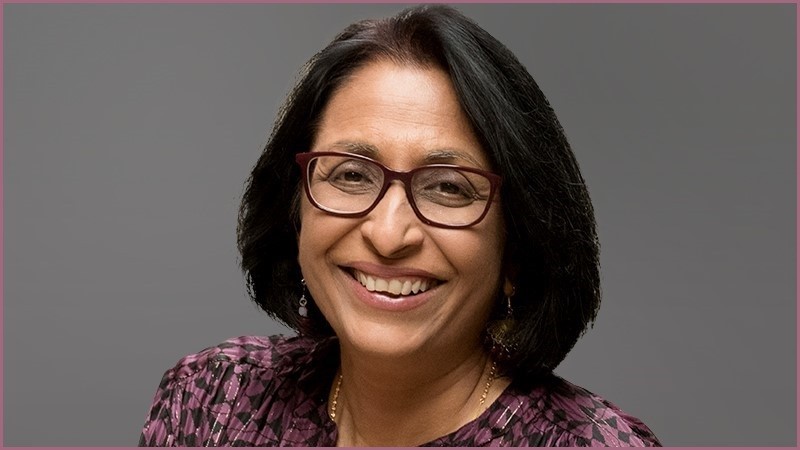2024 Pearcey Medal
The prestigious 2024 Pearcey Medal was awarded to Professor Svetha Venkatesh, distinguished professor and co-director at the Applied Artificial Intelligence Institute, Deakin University. Professor Svetha Venkatesh was also inducted into the Pearcey Hall of Fame, and has been joined this year by Professor Andrew Dzurak and Jan Kornweibel.
David Tudehope (2023 Pearcey Medalist) presented the 2024 Pearcey Medal to Professor Svetha Venkatesh by at the 2024 Pearcey National Event in Brisbane on Tuesday 19 November 2024. The Pearcey Medal is an individual award that recognises a distinguished lifetime of achievement and contribution to the development and growth of the Australian ICT industry and has been awarded annually by the Pearcey Foundation since 1998.
Wayne Fitzsimmons OAM, chair of the Pearcey Foundation, commented,
Professor Svetha Venkatesh isn’t just one of the world’s leading artificial intelligence experts; her lifetime of work in AI has had a profound impact in multiple fields, including public safety and security, mental health, autism and healthcare. In addition, her role as an educator and mentor has contributed towards generational talent and innovation in AI here in Australia and internationally.
The Pearcey Medal and Pearcey Hall of Fame are the pinnacle of recognition in Australia’s ICT industry, with our medallists and inductees chosen each year by their peers in a nationwide vote. Each of this year’s recipients have been both pioneers and leaders in their fields, and it’s particularly special this year that we are recognising the incredible achievements of both Svetha and Jan in the work they have done to improve the lives and opportunities for people with disabilities. It’s an honour to elevate Svetha, Jan and Andrew to a permanent place in our Hall of Fame.
Professor Svetha Venkatesh
Professor Svetha Venkatesh is a leading Australian computer scientist and entrepreneur who has made fundamental and influential contributions to the field of pattern recognition in multimedia data. She pioneered many theoretical and algorithmic foundations for detecting normal and anomalous activities and deriving meaning from digital video.
Originally from India and completing undergraduate studies there, Svetha moved to Australia to undertake her PhD in Computer Science and work at the University of Western Australia. She is currently a distinguished professor and co-director of the Applied Artificial Intelligence Institute at Deakin University.
Svetha and her Deakin team have tackled a wide range of problems of social significance including the critical areas of autism, mental health, security, and aged care. The outcomes of these efforts have impacted our community directly, as well as through publications, patents, tools and spin-off companies.
Recognising the delays in accessing assistance for the treatment of autism, Svetha has used machine learning to create TOBY (Therapy Outcomes By You): software that provides a framework for helping children work on language, social communication, and other skills.
Her work in the mental health area includes the development of a health analytics tool which enables professional mental health professionals to predict suicide risk, and Svetha’s team is currently working with the Black Dog Institute, using AI to accelerate trials aimed at improving the effectiveness of mental health treatments.
As a founder of Icetana AI, Svetha has demonstrated her entrepreneurial skills with this ASX-listed software company that provides video analytics solutions.
In 2017, she was appointed an Australian Laureate Fellow, the highest individual award the Australian Research Council can bestow. During her career, Svetha has been appointed a Fellow of several distinguished academies and associations:
- 2004 - The International Association of Pattern Recognition
- 2006 - The Australian Academy of Technological Sciences and Engineering
- 2021 - The Australian Academy of Science
2024 Pearcey National Event
The 2024 Pearcey National Event also celebrated the 75th anniversary of the execution of the first digital computer program in Australia in November 1949. It ran on CSIR Mk1 (later renamed CSIRAC), which was designed and built by Trevor Pearcey with assistance from Maston Beard and Geoff Hill. The milestone was marked with a keynote by Emeritus Professor Roy Green AM, a CSIRO board member whose father was one of the first users of CSIRAC.
Wayne Fitzsimmons OAM, chair of the Pearcey Foundation, commented,
CSIRAC was the quantum computer investment of its day. Australia is not new to taking strategic bets. Not all of them come off - but CSIRAC did. It always takes time to know the outcome of the investments we make in technology and innovation, but the point is that we can’t sit on our hands and wait for things to happen.

